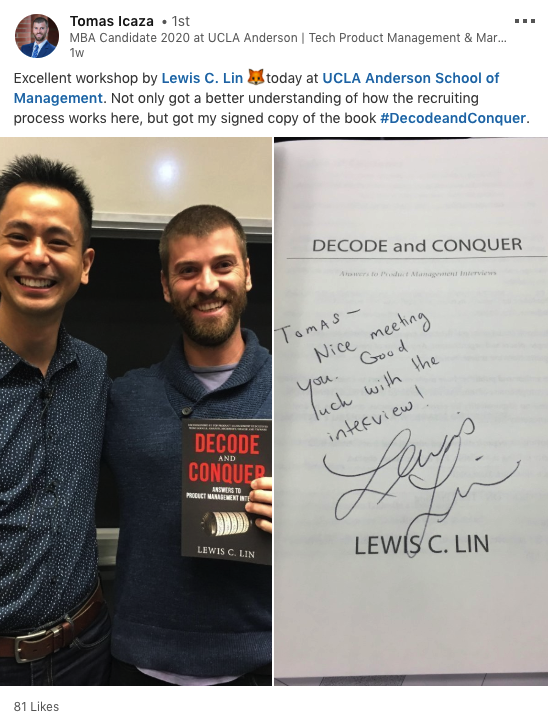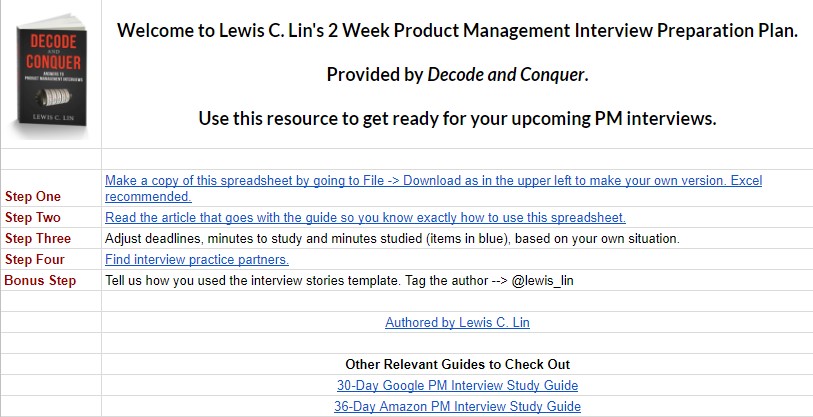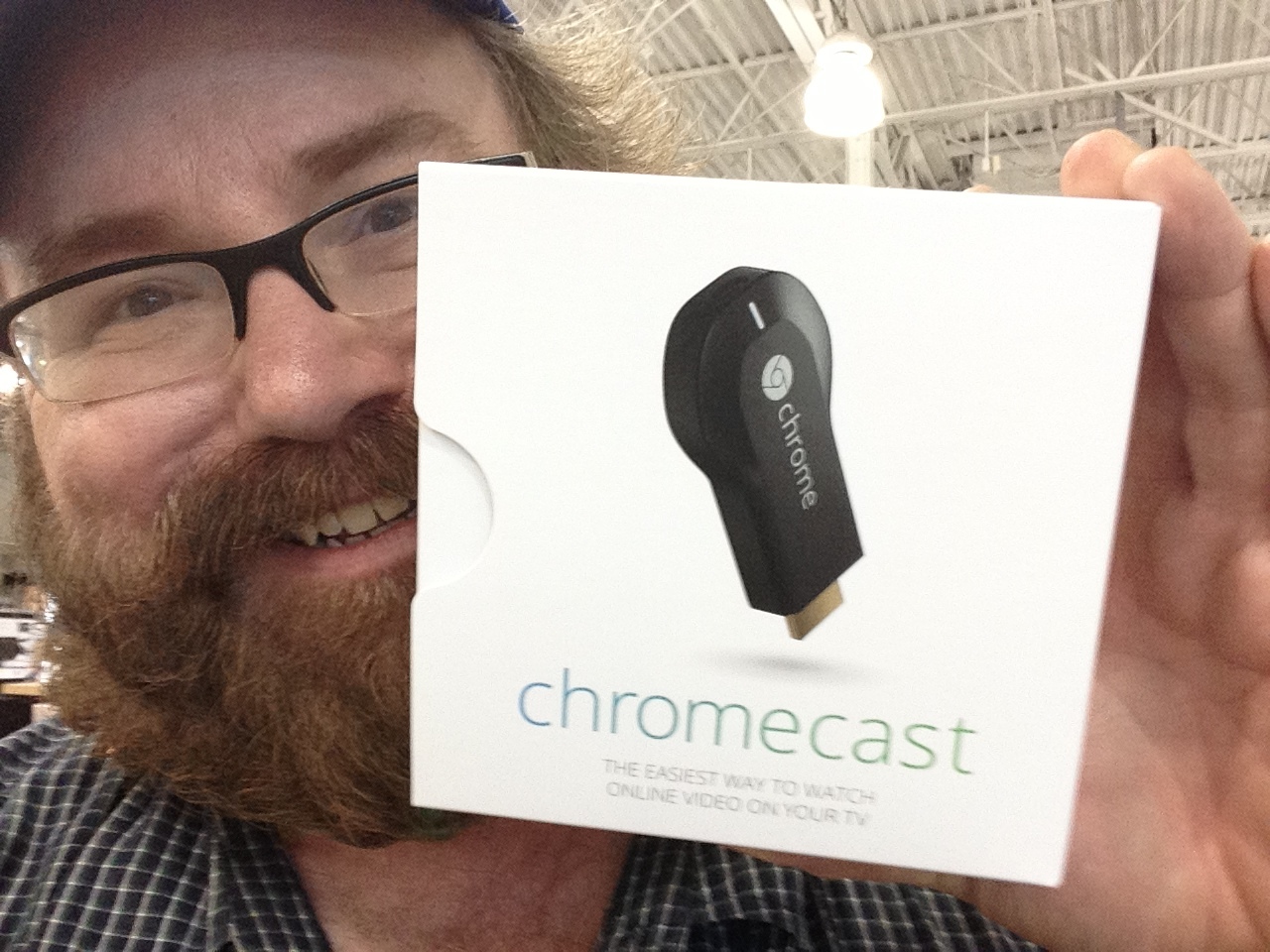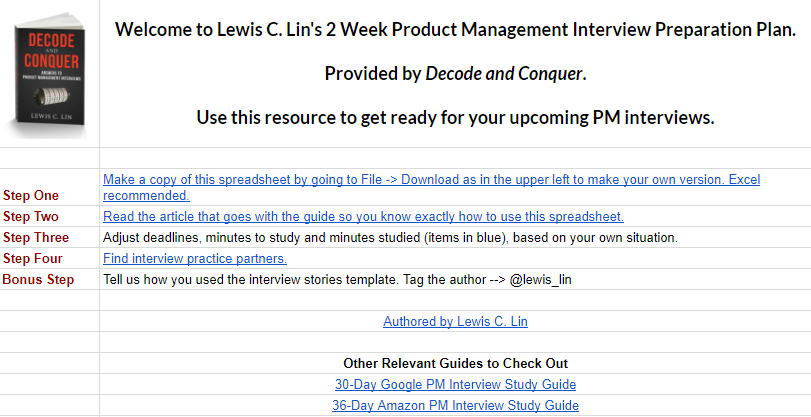Today's marketing candidates have to be prepared for a range of questions from traditional, behavioral, case, analytics, and digital marketing interview questions.
In this blog post, I'll discuss each marketing interview question category and offer tips on how to prepare.
Lastly, I'll include instructions on how you can download my special marketing interview cheat sheet at the end of this post, based on my book, The Marketing Interview.
TRADITIONAL INTERVIEW QUESTIONS
WHAT IS IT
Traditional interview questions are used to learn more about your marketing experience or to test your marketing knowledge. Here are some examples:
What is digital marketing?
What is SEO?
What is PPC?
What is on-page and off-page optimization?
How does a "link building" campaign work?
Describe a marketing strategy that failed.
HOW TO ANSWER
Use the Five Ws and / or the Rule of Three. It'll help structure your response so it's easy to follow. At the same time, it'll help ensure your answer is complete. Your answer should be as credible but as concise as the first paragraph explanation of a Wikipedia article.
SAMPLE ANSWERS
See Chapter 9 of The Marketing Interview and refer to the sample answer for "Tell me about a terrible product that’s marketed well.”
Also refer to Wikipedia definitions for likely marketing trivia questions like:
BEHAVIORAL INTERVIEW QUESTIONS
WHAT IS IT
Behavioral interview questions center around a candidate's past experience. They usually start with "Tell me a time...":
Tell me about a piece of content you edited and how you strengthened that piece of content?
Describe the most difficult scheduling problem you have faced at work.
Tell me about how you worked effectively under pressure.
Describe a time you were faced with stress that tested your coping skills.
HOW TO ANSWER
While the STAR method may work for behavioral interview questions, I've found that in practice the STAR method leads to answers that are dull and uninspiring, I'd recommend the DIGS method™ instead. DIGS will lead to stories that are impactful and entertaining.
SAMPLE ANSWERS
HYPOTHETICAL INTERVIEW QUESTIONS
WHAT IS IT
Hypothetical interview questions asks candidates to speculate how they would handle a theoretical situation. They typically start with "How...?" Here are some examples:
How do you use social media as a tool for customer service?
How could you leverage YouTube in order to promote our brand and increase engagement?
How and when do you evaluate your marketing campaigns?
How do you measure ROI for a social media campaign?
How would you pitch innovative and new approaches to both paid and natural search campaigns?
HOW TO ANSWER
Answer this question in two parts. Part I, spend the first 30 to 40 seconds to present your approach to the hypothetical scenario, using the Rule of Three to structure your response.
Part II, spend the remaining 90 seconds explaining how you've actually used your approach to generate marketing results.
Part I explains a theoretical approach that not only answers the question but is easy-to-remember and easy-to-understand.
Part II eliminates the interviewer's concerns that you simply memorized a textbook approach. Instead, it demonstrates that you not only had relevant experience, but also garnered results.
SAMPLE ANSWERS
Chapter 2 - Creating a Positioning Statement
Chapter 9 - Critiquing a Marketing Effort
Chapter 16 - Strategy Questions
CASE INTERVIEW QUESTIONS
WHAT IS IT
Case interview questions tests the candidate's ability to solve a real-life marketing problem. During a case interview question, a candidate may be asked to:
Here are some recent examples:
You are working at an independent search marketing consultancy and begin working with a client who believes they have been penalized. How would you diagnose the problem and what corrective action might you reasonably expect to take?
You are working for a major hotel chain as a PPC manager and you’ve been asked to explore expanding your campaign to target American customers looking to book hotels in the UK. What would you need to know to forecast whether this campaign would be profitable?
Take a look at these 2 different designs for our new website, which one is better? Why?
Create a 1 month content calendar that includes different types of content ranging from videos, ebooks, blog posts to podcasts and social media.
You’ve been put in charge of planning the company’s nationwide conference. Where do you begin?
A customer has just posted a negative review to the company’s Facebook page and you’re in charge of responding. How do you handle it?
What do you think about our blog?
HOW TO ANSWER
For case questions, you want to apply the appropriate framework from The Marketing Interview. For example:
Marketing plan questions: Use the Big Picture Framework from the book.
PR disasters: Use the PR disaster framework from the book.
Critiquing a blog: Use the MOB Framework from the book.
Evaluating marketing campaign performance: Use the before-and-after analysis framework from the book.
SAMPLE ANSWERS
Chapter 3 - Developing Marketing Campaigns
Chapter 6 - Launching a New Product
Chapter 9 - Critiquing a Marketing Effort
Chapter 10 - Critiquing Advertising
Chapter 11 - Dealing with PR Disasters
Chapter 14 - Getting Analytical: ROI Calculations

















